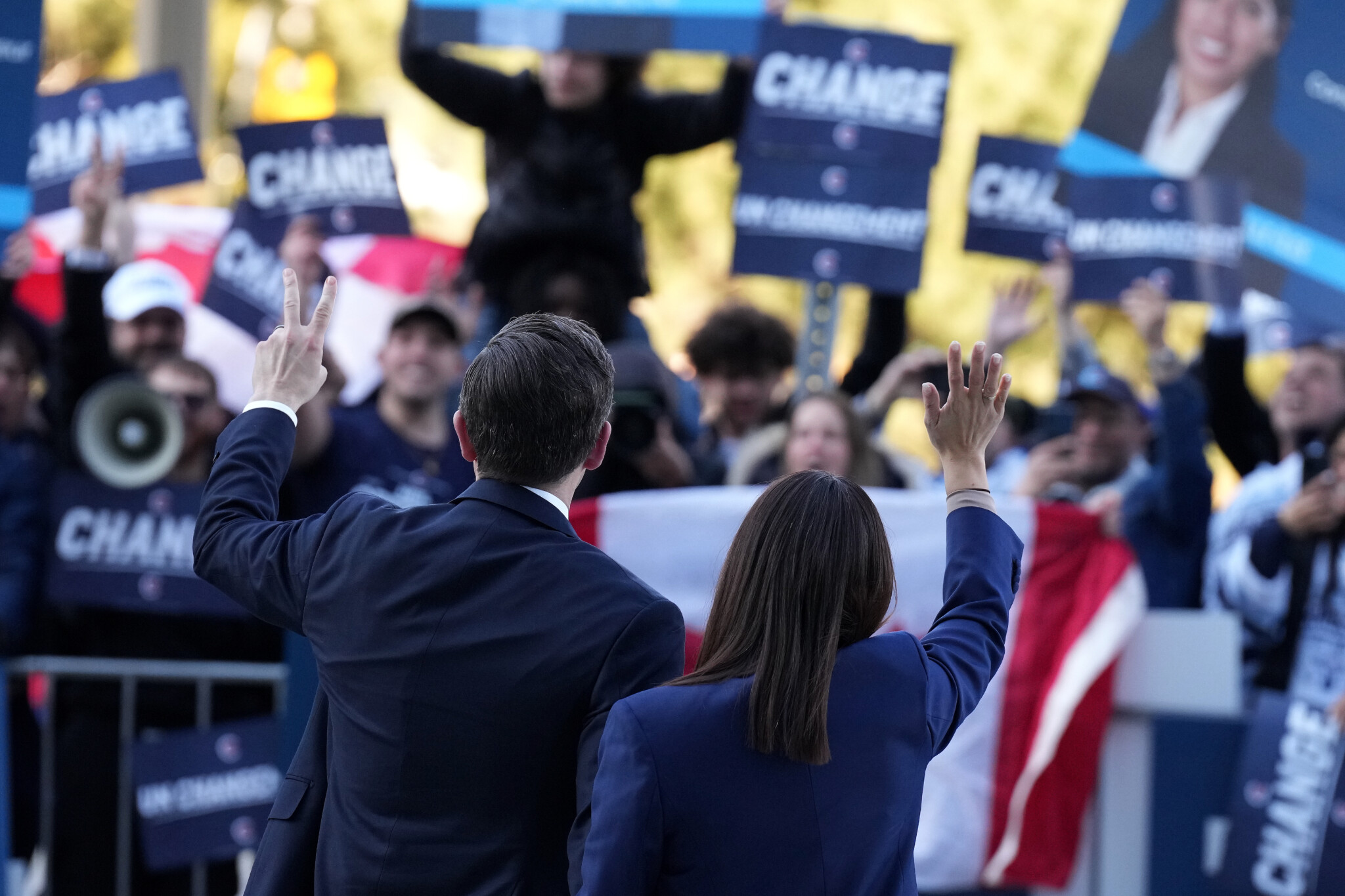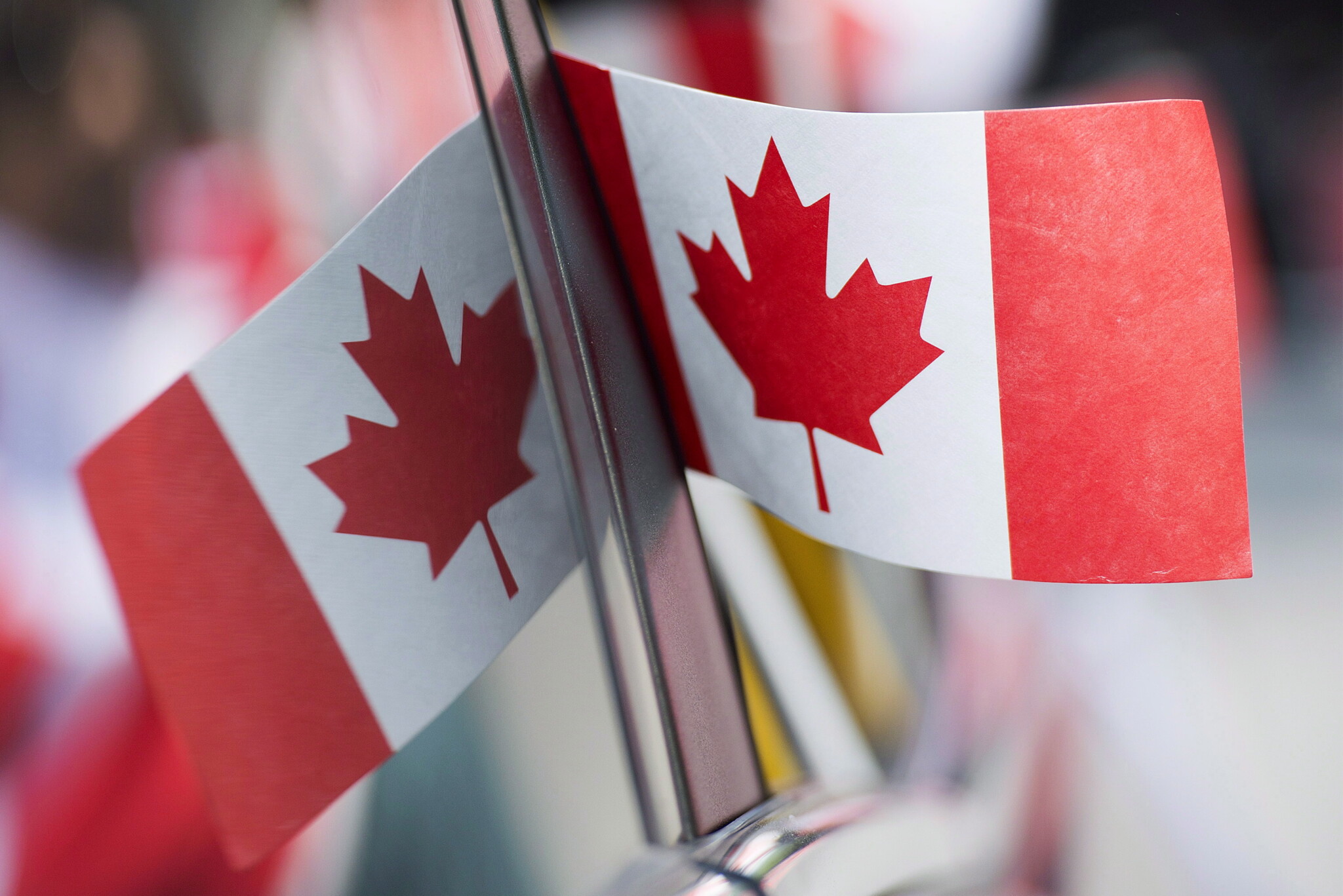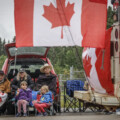On Monday night, as the polls closed, I found a quiet corner of an empty room in the Conservative Party war room, put my feet up on a desk, and played Palestrina’s Missa Papae Marcelli loud enough to drown out the early cheers from the main viewing room down the hall.
I’ve never enjoyed watching election returns. I just don’t see the point. Unlike live sports, where we watch the game unfold in real time towards an unknown conclusion, with election night coverage the suspense is contrived because the result is already fixed. It is political burlesque—a coy, teasing reveal, seat by seat and poll by poll, of an outcome decided hours before.
There is no need to watch Schrödinger reach into the box in slow motion. I’d rather wait for someone to tell me whether my political cat is dead or alive when they know for sure. Last night, as it happens, my political cat turned out to be mostly dead. But as fans of The Princess Bride know, “There’s a big difference between mostly dead and all dead. Mostly dead is slightly alive.”
With the benefit of my first good sleep in more than a month, I’ll go further: the Conservative Party of Canada is more than mostly alive, it is as vital as it has been since 2011. In isolation, the party’s performance was its best in four decades. Unfortunately, the Liberal result was better, even though Poilievre outperformed Carney in the campaign itself to close a polling deficit that was much larger than publicly acknowledged at the time.
Poilievre did it with a new coalition of young voters, labour, and the forgotten men and women who responded to his call to change just about everything Trudeau’s crew wrecked over the last decade. To the crowds who queued for hours for his rallies, it was a message of desperate hope. A generation ago, Obama pitched American progressives on hope and change; for Canadian Conservative voters in this election, they were the same thing: change was their only hope.
On the other side, the Liberals ran a low-energy campaign that was thin on policy and heavy on fear. Carney struggled to articulate in either official language but communicated a sense of reassuring competence, especially to older and well-off Canadians who projected their class sympathies onto his slight and stooped shoulders and thrilled to his “elbows up” refrain—which we later learned he’d told Donald Trump was just political theatre.
Of the two voter coalitions, I’ll take the Conservatives’ for the long haul. Carney was strongest in the parts of Canada that represent Canada’s past (including much of Ontario, now a have-not province whose economy is artificially sustained by immigration, federal subsidies, and equalization payments) while Poilievre did better in the parts of Canada that produce our wealth and represent our future.

Conservative Leader Pierre Poilievre and wife Anaida arrive for the English-language leaders’ debate, in Montreal, April 17, 2025. Chris Young/The Canadian Press.
Poilievre also showed strong with younger voters—a unique feat among modern centre-right parties. Polls taken in the last days of the election showed a clear difference between voters roughly older and under 55. It is not a coincidence that this line neatly divides those who were economically prepared to weather the calamitous Trudeau years and those who suffered the full force of them.
If you bought your first home 20 years ago and if you were well-established in your career before 2015, the last decade didn’t feel so bad. Sure, the prices at your local coffee shop went up and you were constantly surprised by the Lucullan cost of eggs and cheese at Farm Boy, but you shrugged and sucked it up, especially if you had an indexed and defined benefit pension from the golden age of Canadian employment.
For the Boomer comfortably retired in Kelowna, childless in Summerhill, or “elbows up” in a mortgage-free Queen Anne home in the Glebe, the election was about Trump and not much else. There is nowhere more colonized by America than the mind of an aging, educated Canadian breathlessly sharing MSNBC clips on Facebook, while the country beyond their leafy enclave crumbles. The Me Generation enthusiastically voted for more of the same and “après moi, le deluge.”
If you are in your 20s or 30s, however, your priorities in the election were the cost of housing, the cost of living more broadly, and quality of life, especially crime, drug chaos, and out-of-control immigration. Most young and working people were too busy with these urgent and immediate concerns to obsess over the deranged bluster of an aging Herod. Trump is a luxury concern, something to worry about when you have nothing real to worry about.
These are the new Canadian solitudes, as mutually uncomprehending as the old solitudes. If you are worried about your retirement savings, Trump’s willingness to scuttle the U.S. economy and to take Canada’s down with it is a rational concern, albeit not one any prime minister of Canada can fix. If you are 30, the idea of saving for retirement and a down payment for a house is a grim joke. And the older you are, the larger the four remaining years of Trump’s presidency loom in your mental landscape. If you are 30, they are a blip in a long future.
Culturally, it is hard for anyone over 30 to understand a generation for whom Trump is a mainstream politician—the only Republican leader they’ve probably ever paid attention to. To older voters, Poilievre’s direct and sometimes confrontational style looks Trumpian; to a generation accustomed to Trump and attuned to the crude culture of very online communication, the differences are clear, and Poilievre is very obviously not Trumpian.
The good news for Conservatives is that one of these cohorts is growing relative to the other. This was reinforced by the results of the annual Student Vote, a fantastic civic project that conducts a parallel election campaign in schools across Canada. The result of that vote flipped the outcome of the real election, giving the Conservatives a minority advantage over the Liberals (in large part thanks to a more traditional level of NDP support).
Drawing any firmer conclusions about the election before the forensic parsing of the final data is done is a mug’s game. And longer-term predictions must await a new NDP leader and will depend on the new government’s navigation of a complicated Parliament and the erratic verbal irruptions of the American president. But I am confident of this much: while the result is by any measure a Conservative loss, it is by no means a Conservative defeat.










